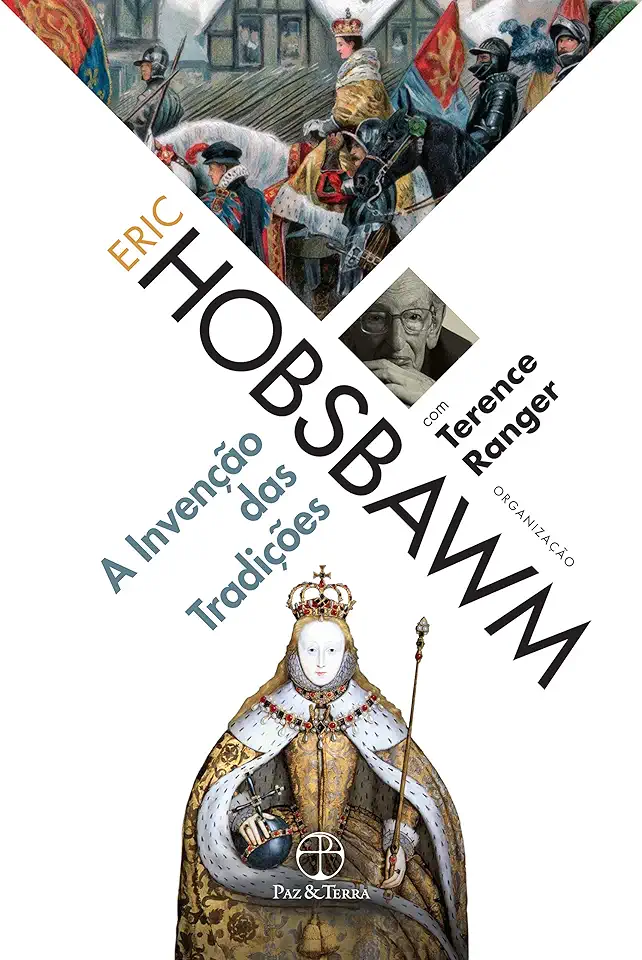
The Invention of Tradition - Eric Hobsbawm
The Invention of Tradition: Understanding the Social Construction of Rituals and Customs
In his groundbreaking work, "The Invention of Tradition," Eric Hobsbawm delves into the fascinating realm of how traditions are not merely inherited from the past but actively invented and shaped by societies to serve specific purposes. Through a meticulous examination of historical case studies, Hobsbawm challenges conventional notions of tradition and offers a fresh perspective on the dynamic nature of social practices.
Unraveling the Myth of Unchanging Traditions
Hobsbawm begins by dispelling the common misconception that traditions are static and unchanging remnants of the past. He argues that many traditions, often perceived as ancient and deeply rooted, are relatively recent inventions, carefully crafted to fulfill specific social, political, or cultural needs. By deconstructing the myth of unchanging traditions, Hobsbawm opens the door to a deeper understanding of how societies construct and maintain their identities.
Case Studies: Exploring the Invention of Traditions
To support his thesis, Hobsbawm presents a series of compelling case studies that illustrate the deliberate invention of traditions. From the creation of national holidays and rituals to the emergence of cultural symbols and practices, Hobsbawm demonstrates how traditions are often consciously designed to foster a sense of unity, legitimize authority, or promote particular ideologies.
The Role of Elites and Institutions
Hobsbawm highlights the significant role of elites and institutions in the invention of traditions. He argues that these influential groups play a crucial role in shaping and disseminating traditions, often using them as tools to maintain social order, reinforce their authority, or create a sense of shared identity among diverse populations.
The Impact of Nationalism and Identity
Hobsbawm emphasizes the close relationship between the invention of traditions and the rise of nationalism. He demonstrates how nations often construct traditions to create a sense of shared history, heritage, and identity, thereby fostering national unity and pride. Traditions, in this context, become powerful instruments for nation-building and the consolidation of national identities.
The Significance of Symbols and Rituals
Hobsbawm explores the profound significance of symbols and rituals in the invention of traditions. He argues that symbols, such as flags, emblems, and monuments, and rituals, such as parades, ceremonies, and festivals, play a vital role in creating a sense of belonging, reinforcing social norms, and transmitting cultural values across generations.
Conclusion: Embracing the Dynamic Nature of Traditions
In conclusion, Hobsbawm challenges readers to recognize the dynamic and evolving nature of traditions. He encourages us to view traditions not as fixed relics of the past but as living, breathing phenomena that are constantly being shaped and reshaped by societies. By understanding the processes behind the invention of traditions, we gain a deeper appreciation for the complexity and adaptability of human cultures.
Why You Should Read "The Invention of Tradition"
"The Invention of Tradition" is a must-read for anyone interested in the fields of history, sociology, anthropology, and cultural studies. Hobsbawm's thought-provoking analysis provides a fresh perspective on the origins and functions of traditions, challenging conventional assumptions and opening up new avenues for research and understanding.
With its engaging writing style and wealth of historical examples, "The Invention of Tradition" is an intellectually stimulating and enjoyable read. It is a book that will challenge your preconceptions and leave you with a deeper appreciation for the dynamic nature of human societies and the ever-evolving tapestry of traditions that shape our world.
Enjoyed the summary? Discover all the details and take your reading to the next level — [click here to view the book on Amazon!]